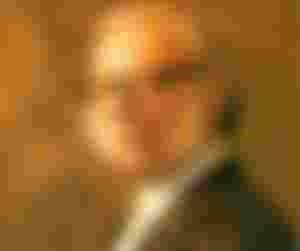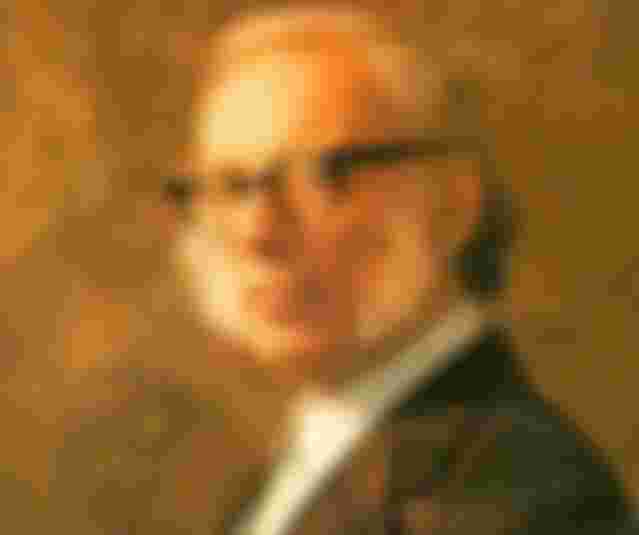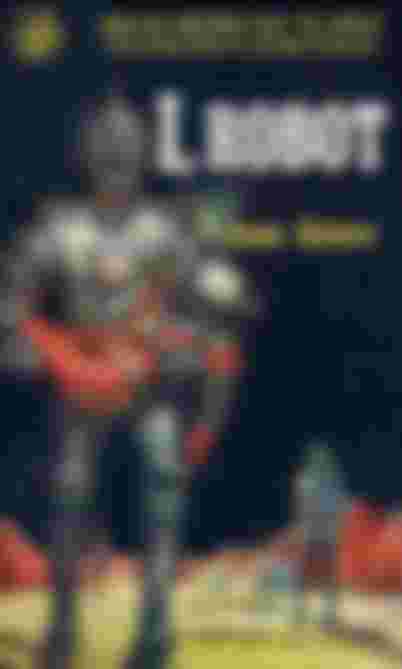Isaac Asimov: The best science fiction writer of all time.
Science Fiction Day is celebrated every year on January 2 in the United States. Millions of science fiction fans in the United States celebrate this day with joy and enthusiasm. Isaac Asimov, the greatest science fiction writer of all time, was born on January 2 in Petrovich, a small village in Soviet Russia. And this day is celebrated as ‘Science Fiction Day’ on the occasion of his birthday.
The number of science fiction fans in the world today is not small. But no one has clear information about the origin or early history of science fiction. Some believe that Gilgamesh was the first science fiction or literature of ancient Sumerian civilization. However, many have opposed it. Most believe that science fiction is not mere fiction, science fiction can be written only on the basis of real science. A science fiction is born by combining the imagination of the human mind with science. According to him, the origin of science fiction is in the post-scientific revolution era.
According to the famous Bengali novelist Sunil Gangopadhyay, "Science fiction is a fairy tale of the modern world." Just as ancient myths evolved from the imagination of the human mind, so did science fiction. The only difference is the imagination of the human mind based on science fiction science! And so it is fair to call science fiction a fairy tale of the modern world.
The greatest narrator of this fairy tale in the modern world is Isaac Asimov. Isaac Asimov is said to be the greatest fiction writer of all time. And that is why he is called, ‘Grandmaster of Science Fiction.’ Isaac Asimov has an extraordinary ability to make a completely unreal world real to the reader.

Isaac Asimov was born on January 2, 1920, in Petrovich, a small village in Soviet Russia. She moved to the United States with her parents when she was 3 years old. He grew up in Brooklyn, New York. Although Asimov is of Russian descent because his family speaks Yiddish and English, he has never learned Russian. He was equally proficient in both Yiddish and English. Learn to read by yourself from the age of 5 only.
His family ran a shop in Brooklyn. Asimov also had to work with his father in that shop. The store sold newspapers, magazines and more, among other things. Asimov began to read them. And fall in love with all this. Started writing. At the age of 11, he started writing. In addition to writing, he started selling them in various magazines at an early age. At the age of 16, his first short story was published in Amazing Stories magazine. The beginning of that writing is not over. He wrote at an unstoppable pace until his death.
Isaac Asimov began his education at Brooklyn Boys High School in New York City. He later graduated from Columbia University in 1939 with a degree in chemistry. He got his PhD degree from here in 1947. In the meantime, the Second World War started. As a chemist he joined World War II. He was working as a civilian at the Naval Air Experimental Station at Philadelphia Navy Yard. After the war he was drafted into the US Army. He was quickly promoted to corporal for his special typing skills. Bikini cleverly removed herself during an experimental explosion of an atomic bomb on a coral reef in 1948. He was given an honorable retirement from the US Army.
After completing his doctorate, he joined the university's School of Medicine as an inspector. He was working here for a long time. Besides teaching, he continued to write with full vigor. Gradually his inclination towards teaching diminished. He was promoted to the post of associate professor in teaching life. Later, in 1989, the university administration honored his writing and awarded him the title of full professor of organic chemistry.

Isaac Asimov's Foundation Series books; Image Source: dweebed.com
Although Isaac Asimov was immortalized for his world-famous science fiction, he wrote everything from science fiction to fantasy, mystery, history, non-fiction, and even some humor and satire. The number of books written by him is about 500! The most popular of which are his books in the 'Foundation' and 'Robot' series. Isaac Asimov's 'Grand Master of Science Fiction' is a big part of this 'Foundation' series.
The first book in the series, Foundation, was published in 1986, followed by Foundation and the Empire and The Second Foundation. These three books are collectively called the Foundation Trilogy. This is the original foundation series. After that he did not go further with this series for about 30 years. But at the request of readers, he was forced to write 4 more books in this series after 30 years. Foundations Edge, Foundation and the Earth, Prelude to Foundation and Forward the Foundation were published in the 80's. These 6 books are basically a 'Foundation' series. Isaac Asimov won the Hugo Award from The World Science Fiction Convention in 1986 as the "Best All Time Science Fiction Series" of the "Foundation Trilogy", consisting of the first three volumes of his Foundation Series (Foundation, Foundation and Empire and Second Foundation). In 1986, the Science Fiction Writers' Association of America awarded him the Grand Master GB Science Fiction.
The main background of the Foundation series is First Galactic Empire. With about 25 million stars, its range is much like that of the solar system. Its population is unimaginable which has to be calculated in quadrillion. This empire, established for about 12,000 years, was said to be the finest example of human civilization. The idea was that nothing could bring it down. But the reality was different. The empire's unimaginably advanced civilization began to rust. The period of its destruction was slowly approaching.
The first book in the series, Foundation, was published in 1986, followed by Foundation and the Empire and The Second Foundation. These three books are collectively called the Foundation Trilogy. This is the original foundation series. After that he did not go further with this series for about 30 years. But at the request of readers, he was forced to write 4 more books in this series after 30 years. Foundations Edge, Foundation and the Earth, Prelude to Foundation and Forward the Foundation were published in the 80's. These 6 books are basically a 'Foundation' series. Isaac Asimov won the Hugo Award from The World Science Fiction Convention in 1986 as the "Best All Time Science Fiction Series" of the "Foundation Trilogy", consisting of the first three volumes of his Foundation Series (Foundation, Foundation and Empire and Second Foundation). In 1986, the Science Fiction Writers' Association of America awarded him the Grand Master GB Science Fiction.
The main background of the Foundation series is First Galactic Empire. With about 25 million stars, its range is much like that of the solar system. Its population is unimaginable which has to be calculated in quadrillion. This empire, established for about 12,000 years, was said to be the finest example of human civilization. The idea was that nothing could bring it down. But the reality was different. The empire's unimaginably advanced civilization began to rust. The period of its destruction was slowly approaching.

His Robot's book cover;
Image source: etriggerz.com
Isaac Asimov wrote his autobiography. His autobiography was published in three volumes. Isaac Asimov had claustrophilia which means he loved to live in small confined spaces. He has mentioned it in the first volume of his autobiography. As a child, he dreamed of owning a magazine stand at the New York City subway station, where he would hear the sound of a moving train. Isaac Asimov was afraid of heights and flight. He did not want to board the plane. And that's why he didn't have to go far away to get on a plane. He has flown only twice in his life. Towards the end of his life he spent a lot of time on sea voyages. He loved to sail on pleasure boats. In addition to being a writer, he was an extremely popular entertainment personality and speaker. Knowledge of his time was extremely keen. He could tell the perfect time without ever looking at the clock.
Isaac Asimov, the greatest science fiction writer of all time, died in 1992. He will live in this generation as well as in the future through all his extraordinary writings.



I prefer Phillip K Dick, but Azimov was the vehicle to a greater knowing for me. Without him, I'd never have had an interest in Deeper thinking.